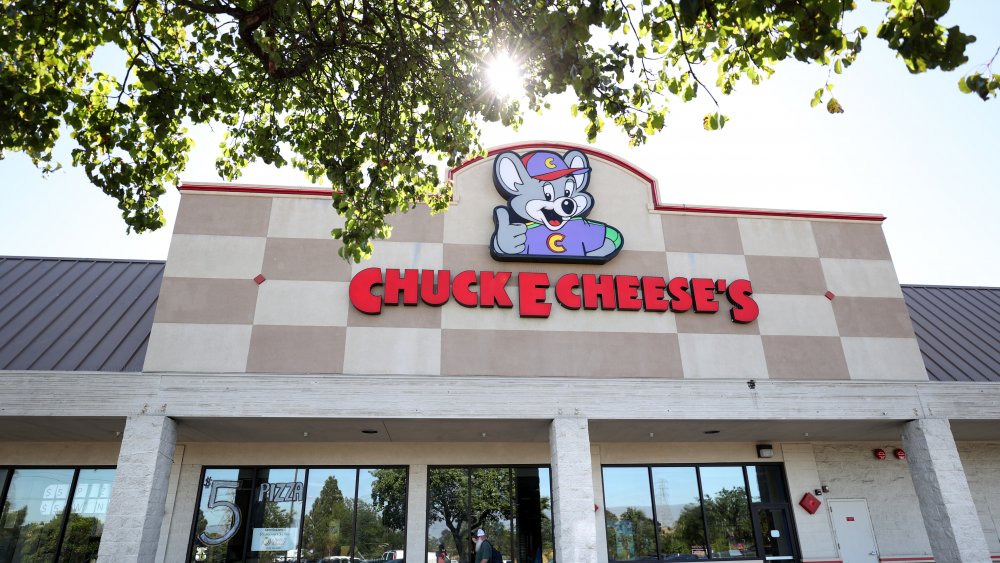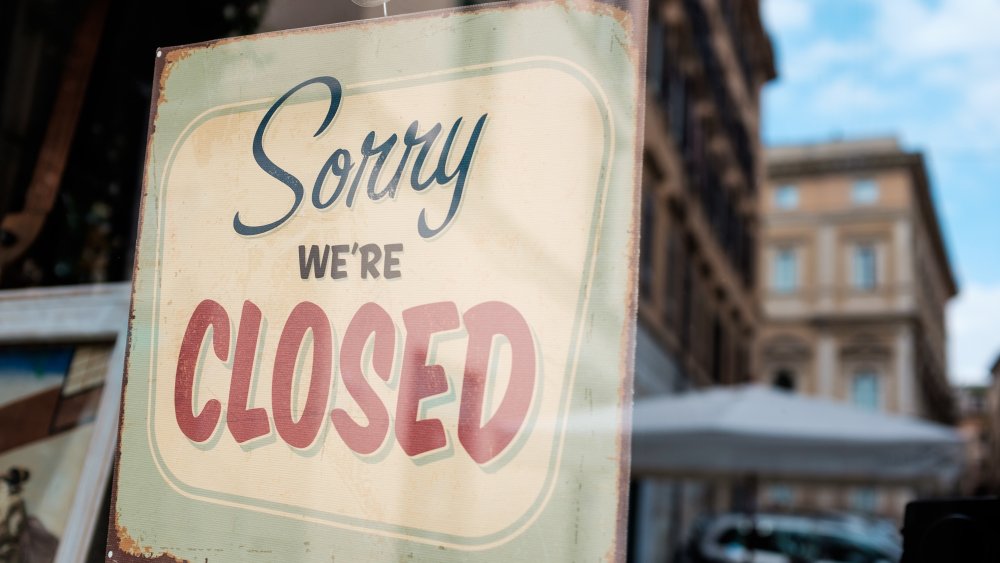What The Chuck E. Cheese Bankruptcy Decision Really Means
If you were toying with the idea of hosting a party at Chuck E. Cheese, it may be worth checking to make sure the restaurant you have in mind is still around. After a last ditch effort to save itself from collapsing, CEC Entertainment, which owns Chuck E. Cheese and Peter Piper Pizza, has filled for bankruptcy protection and will close 34 more locations — including five in California, four in Florida, four in Massachusetts, three in Ohio, and three in Oklahoma (via USA Today).
The bankruptcy announcement wasn't a surprise, because just a few weeks ago, the The Wall Street Journal reported that Chuck E. Cheese's parent company was trying to avoid bankruptcy by talking to its lenders to try to obtain a $200 million loan. It seems the pandemic had left the company with little choice but to seek the court's help, because it had entered the shutdown in a weak financial position. Shelter-in-place orders resulted in a 90 percent drop in revenue, and left it unable to cover expenses like rent. As a result, they fell behind payments at hundreds of locations.
Chuck E. Cheese wants to continue operating normally
Chapter 11 bankruptcy protection doesn't mean you'll be seeing the last of Chuck E. Cheese. Other than the closures, CEC is asking the court to continue operating normally, and is now in the process of reopening 555 restaurants. The company is also asking the court for permission to perks and extras like game credits, tickets, tokens, gift cards, customer deposits, as well as discounts and loyalty cards (via USA Today). "The Chapter 11 process will allow us to strengthen our financial structure as we recover from what has undoubtedly been the most challenging event in our Company's history and get back to the business of delivering memories, entertainment, and pizzas for another 40 years and beyond," David McKillips, CEC's Chief Executive Officer said in a press release (via People).
CEC is not the first restaurant chain to lose outlets because of the pandemic. The industry has been hit very hard by shelter-in-place orders, and the National Restaurant Association expects to lose up to $240 billion in sales by the end of this year.

